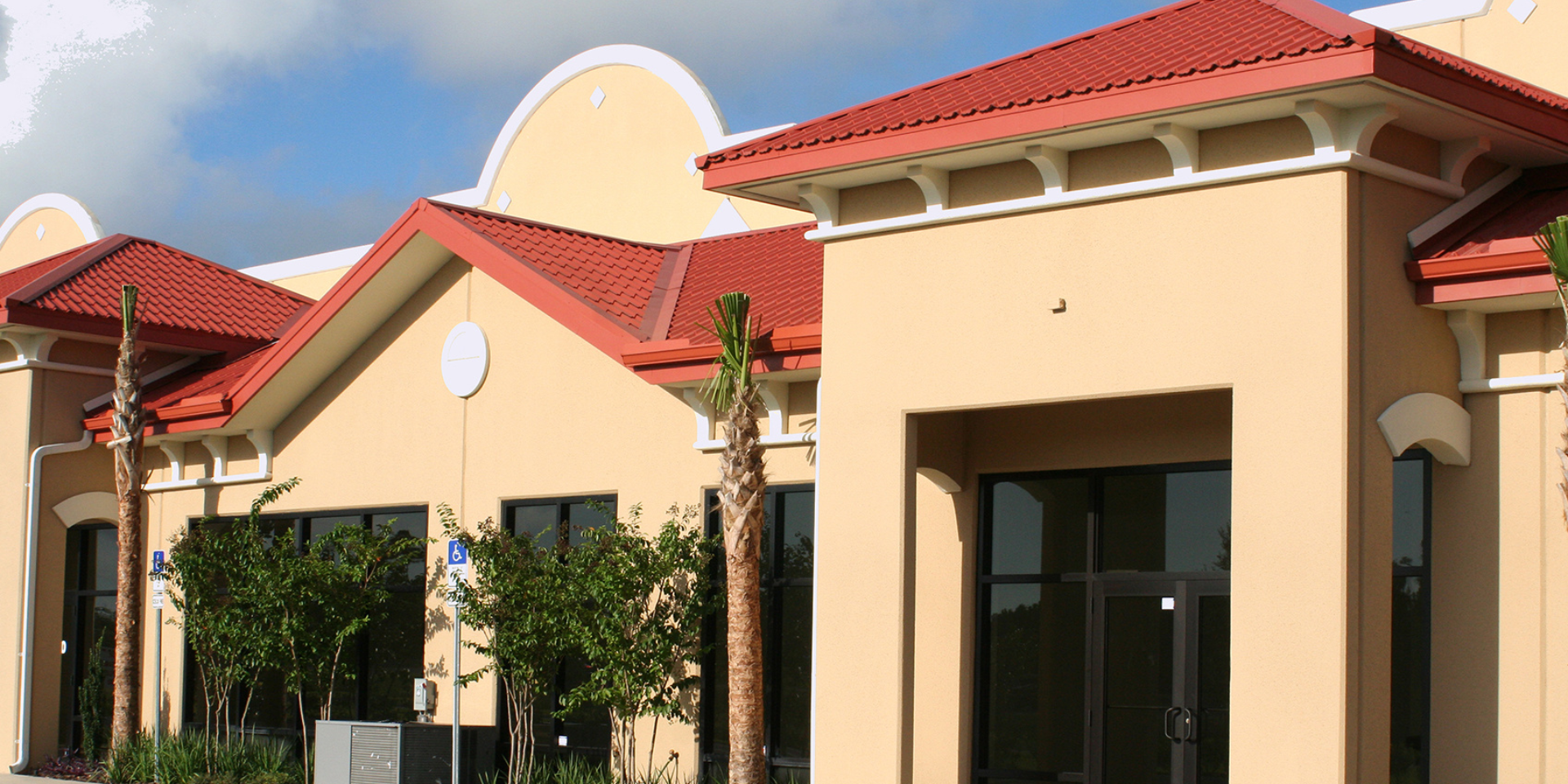Buying a commercial investment property can be a lucrative opportunity for investors interested in expanding their portfolios. As you can imagine, buying commercial property comes with unique challenges. From finding the appropriate investment strategy for you to coming up with the capital to invest, buying a commercial investment property requires more from investors than other traditional investing methods.
Luckily, the right resources and information can help you learn the ins and outs of commercial property investing. This guide walks you through the basics of commercial real estate and what you should know about buying a commercial investment property.

What Is Commercial Real Estate?
Before buying a commercial investment property, it’s important to understand the differences between commercial and residential real estate.
Residential real estate includes only single-family homes and properties with up to four residential units, purchased or leased exclusively by families or individuals. Conversely, commercial real estate is specifically used for generating profit, including residential properties with five or more units.
Commercial property includes five main category types:
- Office – This type of commercial property includes low-, mid-, or high-rise buildings used by multiple tenants for professional office buildings.
- Industrial – This type of commercial property includes low-, mid-, or high-rise buildings used by manufacturing or operations businesses.
- Retail – This type of commercial property is used for businesses selling goods or services to customers and is typically located in accessible urban and suburban areas.
- Hospitality – This type of commercial property includes hotels, motels, short-term rentals, and other travel-related establishments.
- Multifamily – This type of commercial property includes residential properties with more than one unit, including duplexes, apartment buildings, and retirement facilities.
Once you have properly identified the category the commercial property falls under, you can further classify the commercial real estate by class:
- Class A – This commercial property class grading is typically reserved for new, high-quality buildings in prime locations.
- Class B – This commercial property class grading is used for high-quality buildings that are not priced as high as Class A properties due to location, material quality, or age.
- Class C – This commercial property class grading is generally given to older properties requiring repairs that are situated in less desirable locations.

Why Should You Invest in a Commercial Investment Property?
Buying commercial real estate property can be an opportunity to get a sizable return on your investment, but that’s not the only reason investors choose to purchase commercial property. Tax advantages, refinancing opportunities, and hedging against inflation are unique attributes of investing in commercial real estate. Let’s walk through the ways you could benefit from buying a commercial investment property.
Passive Income
A benefit of buying a commercial investment property is the passive income you’ll receive from leasing the property. Your investment cost for buying a commercial property is higher; nevertheless, you can count on your commercial property to bring in a certain amount of income every month.
Asset Appreciation
Market analysis reveals that commercial real estate historically exceeds or equals the return of other investment opportunities, including the S&P 500. While buying commercial real estate is a riskier investment, it is a tangible asset that historically appreciates over time.
Increased Equity
Buying and holding on to commercial real estate property can help you build equity more quickly than other investments. As the building appreciates, you can see a steady increase in your cash flow.
Reduce Effects of Inflation
With inflation rising in the U.S., buying commercial investment properties becomes an even more favorable opportunity for investors. According to a recent report published by BlackRock, real estate has historically outperformed other asset classes during periods of inflation.
Tax Benefits
Buying a commercial property comes with several tax benefits that make the investment even more worthwhile. While it’s important to speak with your tax professional to understand the full tax benefits of buying commercial property, you can count on mortgage interest and depreciation deduction on your tax bill when investing in commercial real estate.

How to Buy Commercial Real Estate
The strategy behind buying commercial real estate is similar to purchasing traditional residential real estate. From ensuring you use the right strategy to running the numbers and finding the right lender, buying commercial real estate is the same as traditional real estate, just on a bigger scale.
As you begin your research, keep these important steps in mind:
Decide on an Investment Strategy
The first step in buying a commercial investment property is determining which strategy to use to acquire the investment. Here are a few strategies you may be interested in researching further:
BRRRR
This investing method is used in buying residential real estate properties and commercial real estate properties. Buy, rehab, rent, refinance, and repeat is a common strategy for purchasing real estate properties of all types, and it’s likely the most familiar strategy.
Passive Investing
Many investors are familiar with and interested in the passive investing method. This strategy is used by investors looking to buy commercial real estate properties solely for passive income. It is a great investing strategy when you don’t have the bandwidth to take on lengthy negotiations or maintenance.
Commercial Flip
Similar to traditional residential flips, this strategy is a good fit for those willing to buy a commercial property that needs some work. With repairs and upgrades, many investors take the opportunity to resell at a higher cost than what they purchased the property for, making a significant return on investment.
Land Banking
Land banking is an excellent strategy if you’re interested in long-term appreciation. Investors use this strategy to purchase large tracts of land that are slated for future development. Though you don’t get the return as quickly, there can be significant returns on investment as the land appreciates in value.
Development
Similar to land banking, the development strategy is for investors looking to purchase land slated for future housing construction.
Wholesaling
This strategy is perfect for the investor looking to make a return on investment without holding on to a commercial property long-term. After finding a suitable commercial property, investors will put the property under contract but then sell it to another investor.

Assessing a Commercial Property’s Value
Once you’ve determined the strategy you’ll use to buy a commercial investment property, the next step is to consider your financing options. Assessing commercial property before purchasing is an important step in securing financing.
Use the following formulas to estimate a commercial investment property’s value:
- Cost Approach Appraisal: cost of the land plus cost of construction less depreciation
- Sales Comparison Approach: research recently sold properties of comparable size and attributes.
- Gross Rent Multiplier (GRM) Approach: determine the rent you can make from the property each year.
- Income Approach: determine the annual capitalization rate of the property by taking the projected annual income from the GRM divided by the property’s current value.
If you need help conducting a comprehensive market analysis to determine the financing approach that is right for you, don’t hesitate to reach out to us. Our team of experts will help you make an informed decision about buying a commercial investment property.

Find a Lender
In addition to determining a commercial property’s value, you’ll want to begin your search for the right financing method. Securing financing before searching for a commercial investment property is a way to ensure the deal runs smoothly and closes quickly.
There are several financing methods you can use, including conventional loans, private money lenders, hard money lenders, home equity loans, and seller financing strategies. Because interest rates vary from lender to lender, it’s important to know your numbers.
Understanding the commercial property’s loan-to-value ratio and your financials before seeking a lender will help you immeasurably. Lenders will assess the loan-to-value (LTV) ratio before approving any financing. Usually, lower LTVs are seen as less risky by lenders, but you are more likely to have to put down a larger down payment to secure the loan.
To find your LTV ratio, divide the amount you’re seeking to borrow by the appraised value of the commercial property. Combining this number with your credit score provides a solid foundation for estimating the right loan type and lender for buying a commercial investment property.

Assemble an Expert Investing Team
The final step in buying a commercial investment property is to assemble your team. Having the right partnerships in place before you begin your buying journey can save you time and money. We suggest finding professionals who are well-versed in commercial investment properties, including:
Real Estate Broker
A real estate brokerage firm specializing in commercial real estate is one of the most important partnerships you can make. Real estate brokers can help you find, buy, and sell the right commercial property for your investing goals and financing limitations.
Additionally, they can help you run the numbers on commercial property you may be interested in to ensure the deal brings the return on investment you’re looking for.
If you’re looking for a commercial real estate broker to help you through the complicated process of finding and buying a commercial investment property, contact us today. At Sovereign Realty Advisors, we provide you with valuable information and expert guidance so you can feel confident in your investment decisions.
Contact us to learn more!
Real Estate Attorney
Having a legal professional well-versed in commercial real estate on your team can save you countless headaches in the buying process. It’s critical to find a real estate attorney who knows the ins and outs of acquiring, financing, developing, and managing commercial investment properties.
We suggest finding a real estate attorney who represents clients in the state in which you are planning to invest as commercial real estate transactions are governed by both federal statutes and state laws.
Accountant
Hiring or partnering with your certified personal accountant (CPA) to ensure your financing is up to snuff is an asset to your purchasing team. The right accountant can save you thousands of dollars in taxes and provide unique tax insights to your commercial investment purchase.
Find a CPA who can help you strategize from the start of your commercial property search. Understanding the tax implications of your investment can help you make better investment decisions.
Other Professionals
Depending on the type of commercial property you’re looking to invest in, it may be helpful to have a general contractor and property manager on speed dial. If you’re interested in buying a commercial property to flip for a profit, having a contractor on your side from the beginning of your search could save you thousands in repairs.
Similarly, if you’re buying a commercial investment property to rent for passive income, having a trustworthy property management team on your side can help you hit the ground running once you buy.
Buying a commercial investment property can be a fruitful opportunity if executed correctly. Beginning your buying journey with the right strategy is the difference between a successful investment and a financial headache.
Avoid the financial pitfalls that come from a poor commercial real estate investment by working with us. For over 20 years, Sovereign Realty Advisors has helped thousands of clients find and purchase commercial investment properties. Whatever your commercial investing goals, we can help.
Contact us to learn more.




